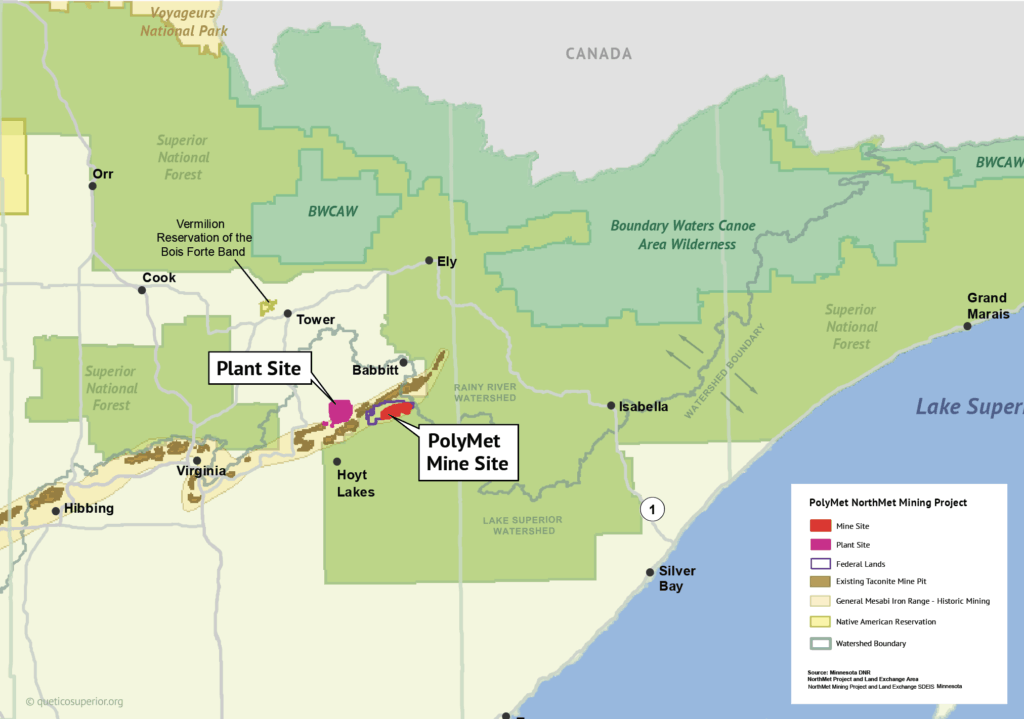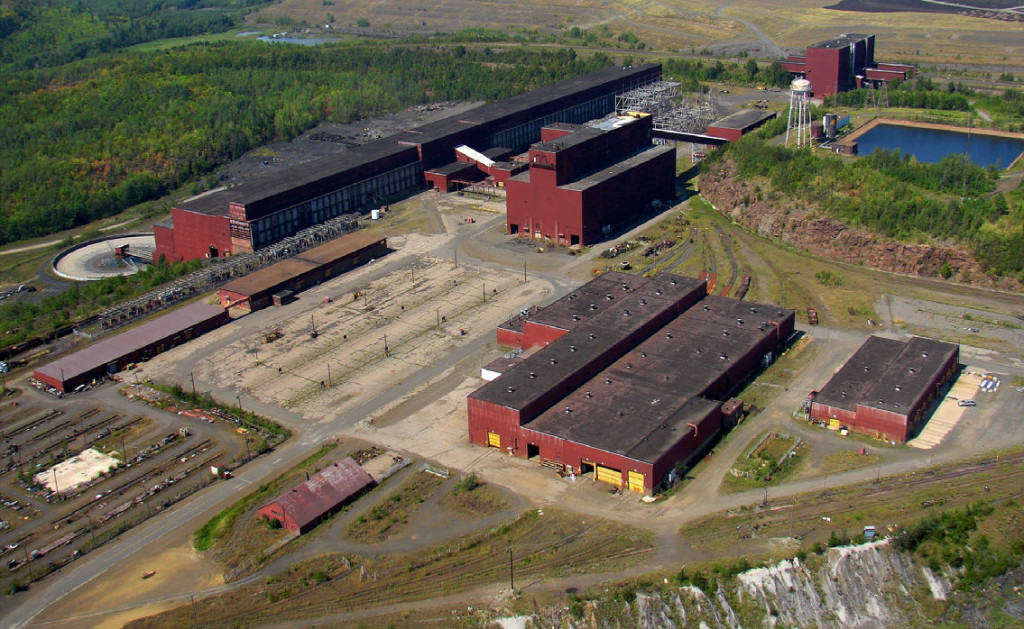
The Minnesota Supreme Court issued a multi-faceted ruling this week that halted the PolyMet copper-nickel mine until the Department of Natural Resources considers key water pollution problems. The decisions came in a lawsuit filed by the Fond du Lac Band of Lake Superior Chippewa and environmental groups.
Both the opponents and the company claim the ruling as a victory. PolyMet pointed to points that were positive, such as narrowly limiting the additional review to come, and reinstating dam safety permits.
“We continue to review the decision and will have more to say about our path forward in due course,” Jon Cherry, chairman, president and CEO of PolyMet said. “In the meantime, we celebrate another key legal victory along with all who value integrity in the state’s environmental review and permitting process and who want responsibly mined metals for infrastructure improvements, electric vehicles and renewable energy.”
In contrast, environmental groups say the fact the mine no longer has a permit, and that the court agrees with fundamental problems in its proposal, is a positive step toward protecting the Lake Superior watershed.
The complicated ruling means the company and the DNR will need to determine when water treatment at the site will end, and whether the liner PolyMet uses to seal waste ponds will work.
“The Court’s decision today is a huge win for Minnesota clean water and downstream communities – and for every citizen who cares about clean water and environmental justice in our state,” said Paula Maccabee, Advocacy Director and Counsel for WaterLegacy. “With its permit to mine now overturned, PolyMet must start over or consider ending their failed effort to build a dangerous, toxic mine in Minnesota’s Lake Superior watershed.”

A key part of the lawsuit concerned contest case hearings. These proceedings are held before a judge, who hears the issue and can make more impartial decisions, helping identify facts.
The permit’s indefinite timeframe was another major stumbling block. While mine operations are expected to halt in about 50 years, water treatment will be required at tailings basins and other locations in perpetuity.
The Supreme Court made five major decisions in the opinion filed on Wednesday, paraphrased:
- Property owners who may be affected by a proposed mine have the legal right to request a contested case hearing
- The Minnesota DNR has the power to decide whether or not to hold a contested case hearing about a permit to mine
- Groups seeking to appeal a contested case hearing denial must prove the DNR’s decision was unsupported by evidence
- The DNR must set a definite, fixed number of years for which a permit to mine will be valid
- The dam safety permit status should not be affected by the status of the permit to mine
The ruling agreed with the DNR’s decision not to hold contested case hearings, including on issues of financial assurance (or a “damage deposit”), Swiss firm Glencore’s involvement and responsibilities, and allowing liquid waste to remain after operations.
But, it did instruct the DNR to hold a hearing on one major issue: the tailings basins that will hold liquid mine waste. Ensuring earthen dams do not fail and that pollution doesn’t seep into groundwater is a significant concern, particularly a clay lining that PolyMet plans to use to seal its tailings basins. The plaintiffs argued it’s not a “practical and workable” technique, and the court agreed the issue should be decided by a judge.
“The effectiveness of the bentonite amendment is critical in preventing oxygen and water from reaching the stored tailings and ensuring the NorthMet project’s compliance with the DNR’s reactive waste rule,” the court wrote. “The DNR’s findings about the effectiveness of the bentonite amendment on the beaches and dam face rest on a study that is not part of the record. Further, the record is entirely devoid of any evidence to support the DNR’s finding that the pond-bottom bentonite cover will be effective in reducing water infiltration and maintaining a permanent pond.”
The Fond du Lac Band’s reservation is on the St. Louis River, some 80 miles downstream of PolyMet’s position in the headwaters. Band members regularly exercise legal treaty rights to hunt and gather on lands across northeast Minnesota. The lawsuit is part of Fond du Lac’s effort to prevent pollution from PolyMet, an essential part of the Band’s responsibility to protect natural communities and human health.
“The Band is extremely pleased with the Supreme Court’s invalidation of the Permit to Mine. The decision recognizes that DNR failed to address significant factual and legal issues that must still be addressed,” said Tribal Chairman Kevin Dupuis of the Fond du Lac Band of Lake Superior Chippewa. “The Band is not opposed to mining, just irresponsible mining and will continue to advocate and fight to ensure that the waters, natural resources and environment are protected for the Band, its members and all Minnesotans.”
The DNR released a statement in response to the ruling saying it was still reviewing the decision. The agency pointed to the several parts that affirmed its decisions, and acknowledged it has work to do. “We will carefully review and implement the Court’s instructions regarding establishing a fixed term for the permit to mine and granting a contested case hearing on whether bentonite is a practicable and workable technology to reduce oxygen infiltration into the project tailings,” they wrote.

PolyMet seeks to operate an open-pit mine for copper, nickel, and other metals near Hoyt Lakes, Minnesota. Extracting ore from such sulfide ores can create toxic water pollution, and pose additional environmental threats.
Other permits for PolyMet are also still under judicial review, including a key air emissions permit.
More information:
- In the Matter of the NorthMet Project Permit to Mine Application Dated December 2017, and In the Matter of the Applications for Dam Safety Permits for the NorthMet Mining Project (PDF) – MN Supreme Court
- Supreme Court affirms block of key PolyMet mine permit – Associated Press

